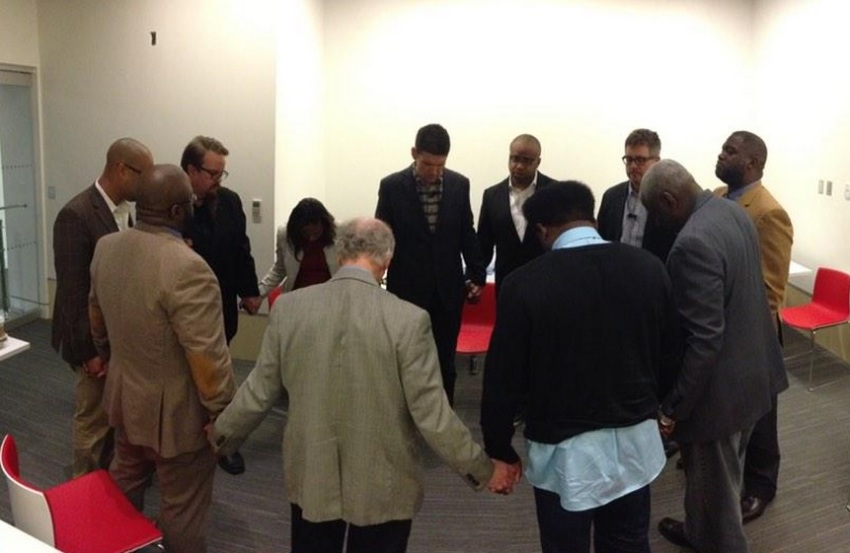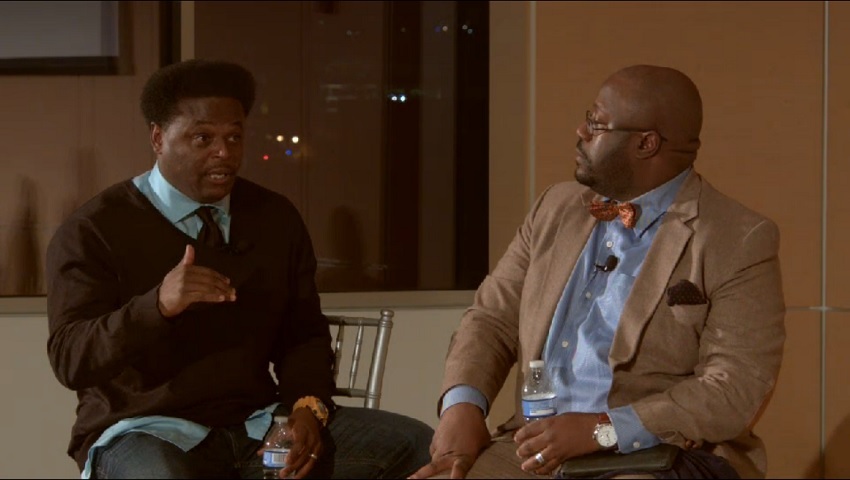Evangelical Leaders Ponder America's Race Problem: Is the Multiethnic Church the Solution?

Evangelical pastors and leaders agreed during a panel discussion livestreamed on Tuesday from the historic Lorraine Motel and National Civil Rights Museum in Memphis about the need for the church in America to be more centered on the Gospel and not be swayed by the media when it comes to racially charged issues currently confronting the nation. Meanwhile the leader of a multi-ethnic church plant movement watching the conference said that it's long past time for only dialogue about race within the local church, and it's time to see results.
"The increased frequency of racially painful, polarizing, dialogue in our society is today forcing the American Church, and more specifically Evangelicals from a much broader base of denominations and networks than ever before, to address their own systemic segregation," said Pastor Mark DeYmaz, who is executive director of the multiethnic church movement Mosaix Global Network and who watched the livestream of the event, to The Christian Post. "And this we must do in order to present a credible witness of God's love for all people in an increasingly diverse and cynical society.
"That said, as I'm sure organizers of this event will agree, many believe it is long past time to speak about race within the local church."
DeYmaz explained, "For as my good friend, Efrem Smith, president of World Impact, recently suggested, we should not be striving for 'Well Discussed' but 'Well Done' when it comes to race, justice, and advancing the kingdom of a God on earth as it is in heaven. Indeed on matters of race it is long past time to get beyond rhetoric to results by establishing healthy multi-ethnic and economically diverse churches for the sake of the Gospel patterned after New Testament churches such as existed at Antioch, in Ephesus, and Rome. Failure to do so will likely render segregated churches irrelevant in the years ahead and/or to be seen as cults in a culture that otherwise values diversity.
"Any credible call to unity and diversity in the local church must be more than a theological construct; it must be evidenced in the churches we, who call for such unity otherwise, lead or attend. It must also extend beyond network and denominational exclusivity to inform our involvement with the greater body of Christ, locally and beyond."
Discussion about the speakers panel, which was called "A Time To Speak" with hashtag #ATimeToSpeak, trended on Twitter for several hours.
During the event's opening, Pastor Bryan Loritts, whose vision it was to have the conference, gave the reason for having the panel discussion.
"Like everybody else, a couple days ago, when I woke up and saw the news that they had refused to indict in the Eric Garner case, my heart sank at the grand jury's decision, but I think I got even a little bit more sad as I watched the same cast of characters assemble together to be on the scene to make pleas for justice," said Loritts. "In the middle of it all I just wondered out loud, where are the conservative evangelical voices."
Loritts was joined by moderator Ed Stetzer, pastors John Piper, Matt Chandler, Darrin Patrick, Derwin Gray, Eric Mason, Thabiti Anyabwile, Voddie Bauchman, Albert Tate, and author Trillia Newbell.
Loritts said the grand juries' decisions to not indict police officers in the cases of Michael Brown and Eric Garner left many in the nation "angry, saddened and hopeless."
"The fact that such heart-wrenching decisions have taken place some 50 years after the civil rights movement have left the children of those who marched in such places as Birmingham and Selma wondering if justice has not only been delayed, but has she finally and permanently been denied," he added in a conversation with Stetzer.
At the Tuesday event, Loritts said, "While the civil rights movement changed laws, it couldn't change hearts, and that's where God working through his people in the already not yet kingdom of God called the church, that's where we can offer some hope."
Panelist Eric Mason, pastor of Epiphany Fellowship in Philadelphia, describing what has transpired in the church since the aftermath of the grand juries' decisions, said, "Our immaturity in the area of the Gospel and race was deeply exposed."
Gray, pastor of Transformation Church in Indian Land, South Carolina, said the church needs to be involved in a multiethnic, multiracial conversation, because Christians are biblically mandated to spread the Gospel to all nations and therefore, all races.
"The church itself has allowed racialized culture to influence us more than the Christ," Gray said during the panel discussion. "What I want to hear is a blood-soaked solution that Christ is our peace, that He broke down dividing walls. That's what I want to get to because I believe there's a resurrected king who is the solution. …My blackness does not define me, my Christ-ness defines me. That doesn't mean I'm going to stop being black, I'm always going to be black, but the beauty of it is that when we bring all of our differences together under the lordship of Christ, that's what the world wants to see. From that we become ambassadors and agents of reconciliation."
Piper, who appeared to be relishing the moment more as a listener, did contribute his thoughts on leadership when it comes to other issues of social significance as well.
"There are cowards in the pulpit who won't touch the subject of abortion with a 10-foot pole, and how much less racism," he said. "So my first plea is, be bold. My second thing, preempt the issues on abortion, racism, and others. Biblically, go there first. Capture the vocabulary, otherwise you'll inherit the Fox News vocabulary, whatever vocabulary, instead of biblical vocabulary."
An archive video of the discussion can be viewed online here: http://live.kainos.is/.




























